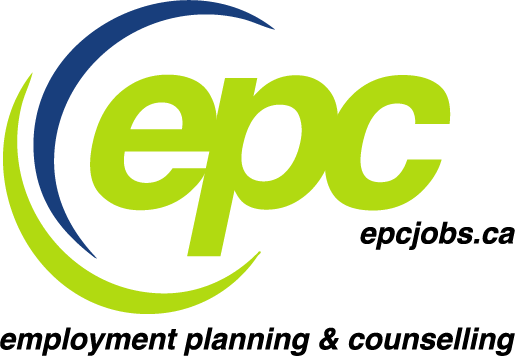During Career Week 2019, we hosted an Employer Panel comprised of The Kawartha Pineridge District School Board, The Keg Steakhouse, Foodland, Kawartha Guard Service and Comfort Keepers. These employers graciously provided us with the following strategies for success when trying to find and keep a job:
Skills/Experience Desired:
Many employers are willing to train. They are looking for core traits including passion, responsibility, flexibility, dedication, compassion, heart and a willingness to learn. A common theme was the need to have customer service/strong people skills as you are the link between the company and the public. The ability to treat a customer as if it was your own business is a priority for employers. Interpersonal, communication and problem-solving skills were highlighted as important in addition to having a positive attitude. Furthermore, separating home life from work life was also outlined. Certification training may be required in advance for some positions and employers are happy to outline requirements in advance.
Traits of Successful Employees:
While some of the traits for a successful employee are industry-specific, all employers in our panel cited the following qualities:
- Can-do attitude
- Team player/team-oriented attitude
- Initiative
- Common sense
- Ability to problem solve/think outside the box
- Responsible behaviour
- Care about your job
- Willingness to learn
- Life experience
Hiring Practices:
Some employers indicated they hire on an ongoing basis, others say recruitment is more seasonal in nature. The Christmas season and summer are times when more employees are required. As training may take a month or more, the timeline for seasonal applications needs to be planned in advance to ensure staff are prepared for the busiest season. August can also be a busy hiring month due to student turnover. A Criminal Police Investigation Check and Vulnerable Sector Check may be required in advance.
The type of recruitment process varies from company to company. While some still embrace the personal approach and encourage applicants to drop off resumes, others will direct you to their website to upload a resume, cover letter and/or complete an online application or questionnaire. When dropping off a resume in person, appearance, personal grooming and confidence play a strong role in the decision-making process. First impressions are powerful so it is important to dress appropriately and be well-groomed. Presentation skills can have up to a 90 percent impact on the recruiter whereas your resume may only factor into 10 percent of the decision. Try to highlight your personality and personal qualities. Regardless of the approach, it is important to review the company website and job posting in advance to ensure that you are tailoring your information. Adding volunteer experience, relevant certifications and transferable skills will show the employer if you are a “fit” for the position.
Applications/Cover Letters/Resumes:
Employers strongly encourage job seekers to customize their resume and cover letter for each position suggesting you read the job description for keywords so you can provide relevant information. Attention to detail is important so take the time to edit and proofread for spelling, grammar and punctuation issues. All relevant experience is helpful regardless if it is from paid or unpaid positions. Be prepared to address gaps in your resume.
Employers take a very quick glance at your resume and recommend for you to highlight your personality. While employment skills are considered, many employers focus on your presentation skills as well. Finally, it is important to be honest and truthful about your availability and employers will try to work around other part-time jobs if possible.
Employer Pet Peeves:
- Not showing up for interviews – employers are unwilling to give second chances to those who have made no effort to show up or contact them to explain the reason.
- Being distracted when speaking to employers on the phone – remove distractions and noises (ie. children, pets, music, television) when speaking to a potential employer.
- Misrepresenting qualifications or availability for work – it is a waste of both your time and the employer’s time if you are not a match for the position.
- Saying you want the employer’s job in an interview – it is better to highlight that you would like to grow with the company.
- Providing one-word answers – employers are trying to understand what you have to offer and it is your job to tell them about your skills and training.
- Poor appearance/hygiene/body odor – many jobs require customer contact and it is imperative that you are able to represent the company professionally.
- Poor attitude – now is your time to shine and put your best foot forward. If you seem unapproachable now, there is no expectation you will be any better on the job.
- Being unprepared – know what is on your resume and be prepared to sell yourself.
- Nervous jitters – employers are understanding…if you find yourself overly-nervous, let them know and they will do their best to put you at ease.
- Bad timing – know what time of day is best to contact an employer and avoid their busy times.
- Being difficult to contact – make sure to pick up your phone, check emails regularly and respond to messages in a timely manner. If you are not available, employers have no other choice than to move on to the next candidate.
- Not asking questions – while you may be nervous about a new job, asking questions helps you to clarify your responsibilities and learn the job properly.
- Being impatience – the time it takes to learn the job can vary in length so being patient with your employer, coworkers and yourself are imperative.
- Having a lack of insight into your limitations – whether it be a lack of skills, limited availability, physical restrictions or other issues, knowing your limitations and conveying them to your supervisor is more likely to result in success than continuing to ‘muddle your way’ through it.
- Taking things personally – in many industries, a ‘thick skin’ is required to deal with the job expectations, customers, pace or work climate. Managing your stress is the key to keeping things in perspective.
The Role of Social Media:
Presentation skills are important so be mindful of what you are putting out on social media.
While some employers would rather have that one-to-one personal approach, other employers will Google your name prior to hiring. Once you are hired as an employee, they may also be inclined to check out your online image as you are now a representative of their company. It is also important to follow company protocol regarding what is appropriate to post online about your employer.
Final Advice:
- Ask questions
- Dress to impress
- Highlight expectations
- Demonstrate that you are ‘hungry to work’
- Be willing to start at the bottom
- Demonstrate confidence
- Show enthusiasm but not desperation
- Highlight shared values with the company (via website research)
- Be positive
- Smile and eye contact
Many thanks to our Career Week Employer Panel for their time and expert advice regarding tips for finding and keeping a job!
For more assistance with your job search, book an appointment with a Career Counsellor at EPC or check our Workshops & Events section for upcoming dates.

